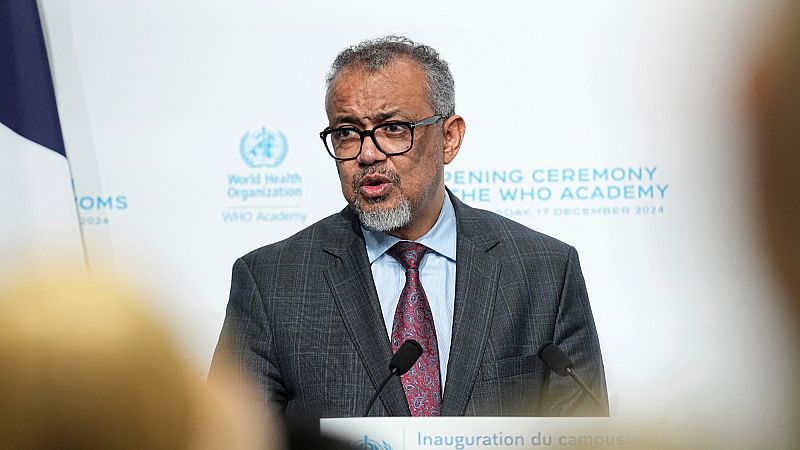
Countries from around the world have agreed on a pandemic treaty that could be formally approved next month, creating a new rulebook for future global health crises.
The deal comes five years after the COVID-19 pandemic rocked the globe, killing more than seven million people and exposing a stark north-south divide in access to medical treatments and vaccines.
Once adopted, the treaty will be legally binding. It will require countries to boost their surveillance of pandemic-level threats, share diagnostics, vaccines, and medicines more quickly, do more to prevent viruses from spilling over from animals to people, shore up their national health systems, and more.
“We have not achieved all our objectives in the negotiation, but we believe that the new agreement, if effectively implemented, will make the world more resilient and better equipped to face the global health security challenges of the future,” a negotiator representing the European Union (EU) said in the meeting's closing session.
The agreement is the culmination of talks that were first proposed in 2020.
Negotiators initially gave themselves until May 2024 to finalise the treaty, then pushed the deadline to May 2025.
Negotiators, civil society groups, and global health experts say that while the agreement has been watered down over time, it represents a historic win for the World Health Organization (WHO) at a time when the global health body has been thrust into chaos.
“There were clearly a lot of gaps that were exposed by the COVID pandemic [and] the treaty doesn’t address every one of those gaps,” Suerie Moon, co-director of the Global Health Centre at the Graduate Institute of International and Development Studies in Geneva, told Euronews Health.
But “I think all countries are better off because we have this treaty,” she added.
The final sticking point was a technology transfer clause to govern intellectual property rights and other tools to produce medicines and vaccines.
Lower-income countries wanted strong rules that would enable them to make these products locally, but wealthier countries, including EU members, said any tech transfer must be voluntary and “mutually agreed” upon.
Germany’s representative stressed that point in the talks’ closing session.
“We have also advocated strongly for transfer of technology to be voluntary for technology holders, and this is how we understand the current provisions in the text,” the representative said.
Another issue has not been fully resolved either: the creation of a new pathogen access and benefit sharing (PABS) system, in which countries would share pathogen samples with drugmakers in return for access to vaccines and medicines.
Negotiators have agreed to create a PABS system, but haven’t hammered out how to set it up. They plan to keep discussing the issue in the coming months, and will include any decision as an annex to the treaty.
“That should help poorer regions like Africa to become more self-sufficient in the face of a pandemic, not having to wait for charitable donations,” Lawrence Gostin, director of the WHO Collaborating Center on Global Health Law at Georgetown University in the US, told Euronews Health.
More than 190 countries were involved in the talks, which were facilitated by a WHO-organised intergovernmental negotiating body (INB).
But there was an elephant in the room during the final negotiations in the form of Donald Trump, given the US pulled out of the talks in January as part of its move to extradite itself from the WHO.
The lack of US involvement could undermine some of the accord’s key planks.
For example, the agreement says “participating manufacturers” should set aside 10 per cent of the pandemic-related vaccines, medicines, and diagnostics they produce for the WHO to distribute during emergencies. It also says they should aim to give another 10 per cent as a donation.
But it’s not clear exactly who will count as a “participating manufacturer” – and if US-based drug companies aren’t included, it could leave a large gap in the organisation’s reserves.
“There's a lot of ways in which we still don’t know exactly what the implications are,” Moon said.
Countries will formally vote on whether to adopt the treaty next month at the World Health Assembly in Geneva. It would be only the second WHO treaty to be agreed upon since the group was formed in 1948; the first was a tobacco control treaty in 2003.
The accord will likely shape the global response to the next health crisis, given experts say future pandemics are not a matter of if, but when.
“Treaties are very difficult to change,” Moon said. “I think that at least for a generation, what we have is what we’re going to get.”







